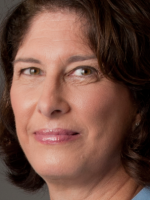LINDA WERTHEIMER, host:
This is WEEKEND EDITION from NPR News. Scott Simon is away. I'm Linda Wertheimer.
Mr. PATRICK FITZGERALD (Special Prosecutor): At the end of the day, what appears is that Mr. Libby's story, that he was at the tail end of a chain of phone calls passing on from one reporter what he heard from another was not true. It was false.
WERTHEIMER: That was special prosecutor Patrick Fitzgerald speaking from the Justice Department yesterday. Lewis Libby, the top adviser to Vice President Dick Cheney, resigned yesterday as Mr. Cheney's chief of staff. He is accused of obstructing justice, lying to the FBI, and also lying to a grand jury in the CIA leak case.
NPR's national political correspondent Mara Liasson joins us. Good morning, Mara.
MARA LIASSON reporting:
Good morning, Linda.
WERTHEIMER: So, Mara, at the end of the day, what is the significance of these charges and of Mr. Libby's resignation yesterday?
LIASSON: Well, the charges are quite significant: five counts of perjury, obstruction of justice and false statements. If convicted, he would face 30 years in prison and $1 million in fines. But the political significance is that this is another blow to an already politically weakened president. The White House now has one of those full-blown second-term scandals on its hands. And in addition to all of its other problems--the president's dropping approval ratings, an unpopular war, this rebellion of its base over the Harriet Miers nomination, which had to be withdrawn this week--now they have indictments.
Lewis Libby was the most powerful aide to the most powerful vice president in history. He has been called Vice President Cheney's alter ego. He was one of the architects of the Iraq War. Just to give you an example, his official rank in the White House is equivalent to the national security adviser. He's an assistant to the president in addition to being chief of staff to the vice president. And to give you an example of some of the political significance, you would expect Democrats to say this shows that there's a culture of corruption in the White House and Congress, but even Republicans--Today in The Washington Post, the chairman of the House Government Reform Committee, Tom Davis, said that he was very disappointed in Libby, the White House, the vice president and the president, and he said, `They brought this on themselves.' So that's pretty harsh.
Now I should say, though, things could have been worse. Karl Rove could also have been indicted and he wasn't.
WERTHEIMER: One of the president's closest aides, Karl Rove. Is it fair to say he's off the hook?
LIASSON: Well, Patrick Fitzgerald didn't say that yesterday, but a lot of former prosecutors said that yesterday was probably the day to charge him if Fitzgerald was going to. Nobody knows what Fitzgerald will do next. He says the investigation of Karl Rove is still open, but I would say that certainly in the White House there's a lot of relief and the expectation is that Rove would not be charged.
WERTHEIMER: Now do you think this means that there could be other grand juries which will look into the matter, or would the same jury reconvene? I wasn't clear on that from what the prosecutor said.
LIASSON: Well, this grand jury has expired. It won't reconvene. It's been extended as much as it can be, but he could impanel another grand jury. But the suggestion yesterday from the press conference was he more likely would just go to another existing grand jury. There are plenty of them. And he can present his case to another one that already exists.
WERTHEIMER: Someone was identified as Official A in the indictment. Who is that?
LIASSON: Karl Rove, the person who informed Lewis Libby that Robert Novak was writing a column about Joe Wilson. The big mystery remains, who was Novak's second source? He says he has two administration sources and we still don't know who the other one is.
WERTHEIMER: Thanks very much, Mara.
LIASSON: Thank you, Linda.
WERTHEIMER: NPR's Mara Liasson. Transcript provided by NPR, Copyright NPR.







